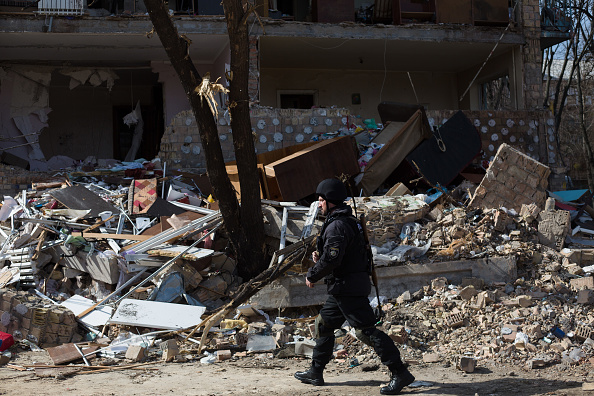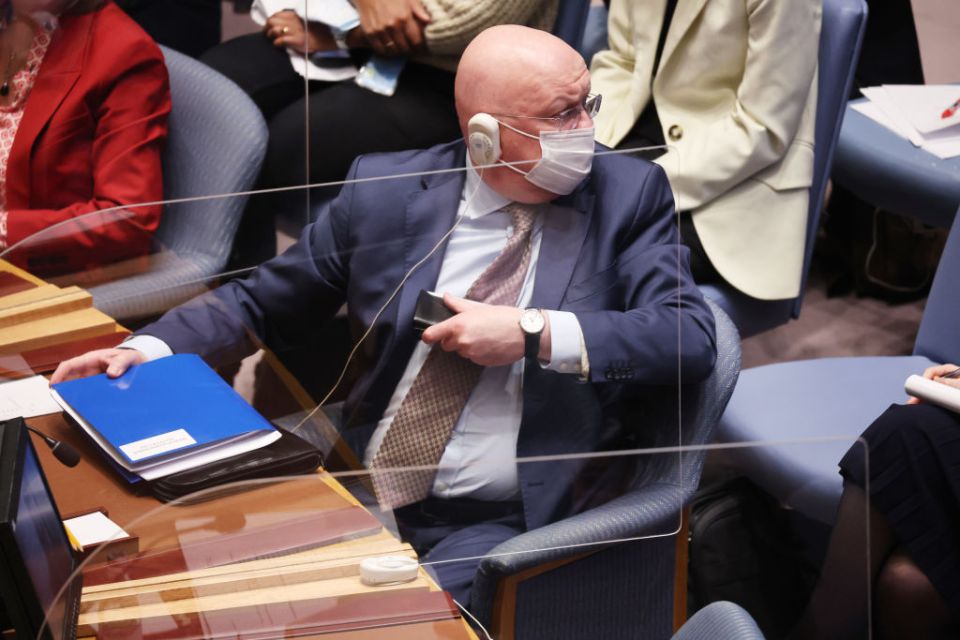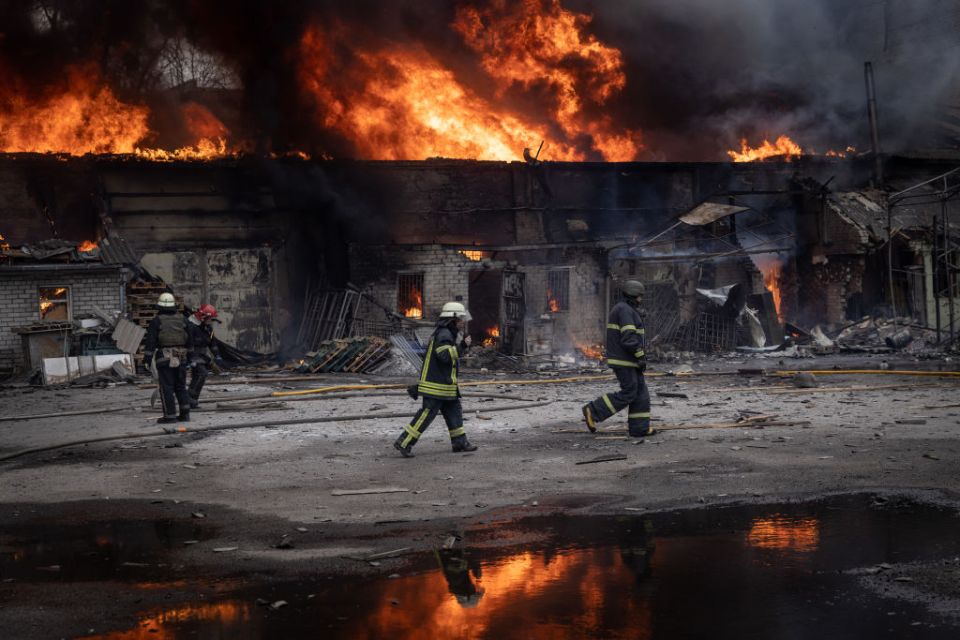Russian promise to ‘drastically reduce hostilities’ may be bid to ‘deceive people and deflect attention’

Ukraine and the United States have cast major doubt on Russia’s reported promise to “drastically reduce hostilities”, with and secretary of state Antony Blinken warning it could be a bid to “deceive people and deflect attention”.
Following “constructive” ceasefire negotiations held in Turkey between officials from the two warring sides, it has been reported that Vladimir Putin was withdrawing troops from the capital Kyiv.
Earlier this week, he announced the war was refocusing on the eastern regions of Donetsk and Luhansk, which it declared it had effectively annexed at the start of the war. However shelling continued after this promise, including in the western city of Lviv, as violence also occurred on the outskirts of Kyiv.
The Telegraph reported that in the talks, Ukraine offered to make itself ‘neutral’, but hours later shelling occurred in the capital again.
Russia’s chief negotiator, Vladimir Medinsky, said the Kremlin’s “de-escalation does not mean a ceasefire”, while president Volodymyr Zelensky, who has refused to leave Kyiv, warned Russia’s claimed promises could not be trusted.
Zelensky said in a video address: “Ukrainians have already learned during these 34 days of invasion and over the past eight years of the war in Donbas that only a concrete result can be trusted.”

American doubt about Russian withdrawal
When asked about Russian claims it would quit the Ukraine capital and ‘de-escalate’, US President Joe Biden told a White House press conference: “We’ll see. I don’t read anything into it until I see what their actions are”.
Secretary of state Antony Blinken said there was nothing to suggests talks were moving forward in a “constructive way.
Blinken added that Russia’s claim of pulling back could be a bid to “deceive people and deflect attention”.
This comes as Turkey’s president Recep Tayyip Erdoğan hosted a conference in Istanbul, in a bid to facilitate a ceasefire.
It was reported there was a “cold welcome” with “no handshakes” between the two delegation teams, and Chelsea owner Roman Abramovich also in attendance Earlier in the week, it was claimed he had suffered symptoms of a poisoning attempt during similar such peace negotiations in Kyiv, at the start of the month.

UK’s response to de-escalation claims
The UK ministry of defence issued an intelligence update this morning which said Russia was “suffering heavy losses” and had “been forced to return to Belarus” so it could “reorganise and resupply.”
It said this was putting pressure o its “already strained logistics and demonstrates the difficulties Russia is having reorganising its units in forward areas within Ukraine.”
The update warmed Moscow would “compensate for its reduced ground manoeuvre capability through mass artillery and missile strikes” and that its “stated focus on an offensive in Donetsk and Luhansk is likely a tacit admission that it is struggling to sustain more than one significant axis of advance.”
At the UN Security Council on Tuesday, Ambassador Barbara Woodward warned about “spiralling energy prices, and global food insecurity, hitting the most vulnerable the hardest. Almost every UN Member State is now suffering because of Russia’s war.”
“Russia’s appetite for war is taking food off the world’s table.”
She branded it another “Russian false flag”, reminding the UN Security Council Moscow promised “not to invade” the country in the first place.
